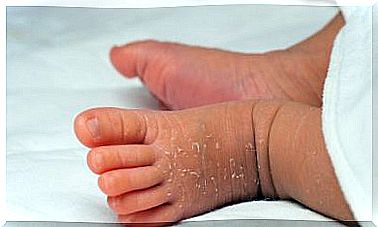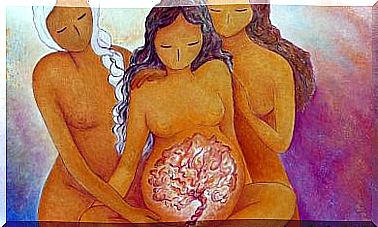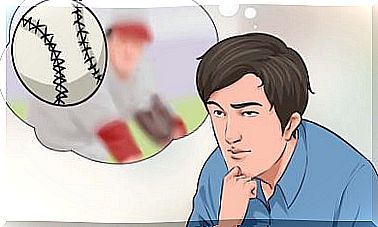Princess Girls And The Consequences Of Real Life
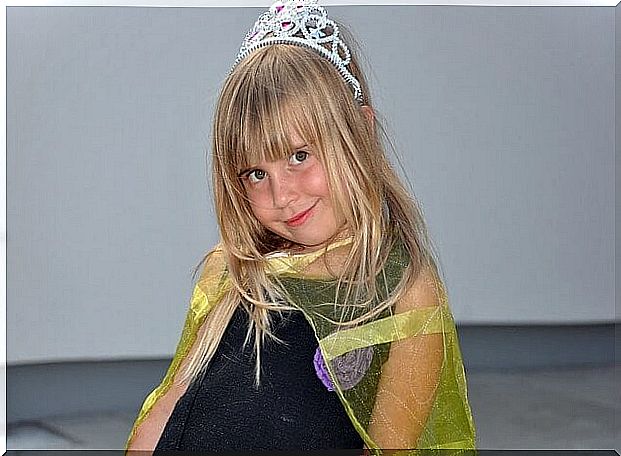
A few days ago, an ad with a video of a wedding held at Disney appeared on Facebook; of course it is a fairy tale that bewitches many women. Wedding prices are not unattainable, but they are not cheap either … And yes, it is possible that many brides, after paying and agreeing on certain matters, feel like princesses for a few minutes, but they will be the princesses that the industry created.
Adriana is 32 years old and watched quite a few Disney movies as a child. Her 9th birthday was inspired by Princess Ariel, the protagonist of the movie The Little Mermaid .
On the table there was a pill cake with the figure of Ariel, he also received a bag and clothes of the same character to go to school, and of course, he had the movie that he saw quite often.
As a child Adriana also played with many Barbies dolls – who were very independent ladies, with a car, their own businesses, apartments, etc-. That woman is now not a “princess” at all. And she was not, in her time, a child princess.
However, the comparison between the advertising bombardment of 1992 to that of now is ridiculous, because just in the year 2000, when the “Disney Princesses” franchise emerged, princesses have been more present in our lives; That franchise alone boasts around 25,000 spin-offs from the movies about Cinderella, Sleeping Beauty, the Little Mermaid, Belle, Jasmine, Mulan, Pocahontas, Tiana, and most recently Rapunzel.
The problem is not that the industry bombards you, it always will, the question is whether you open the door of your house and let your daughter stop wanting to be her to become a princess girl.
In this aspect, whether to let the princesses into your house or not, it is necessary that once again you look for a middle ground, because the solution is not to prohibit your daughter from playing princesses. ” The problem would not be that the girls play princesses, but the thousands of products that are offered to them to do so, “ argues a group of experts in an article published by the newspaper La Vanguardia.
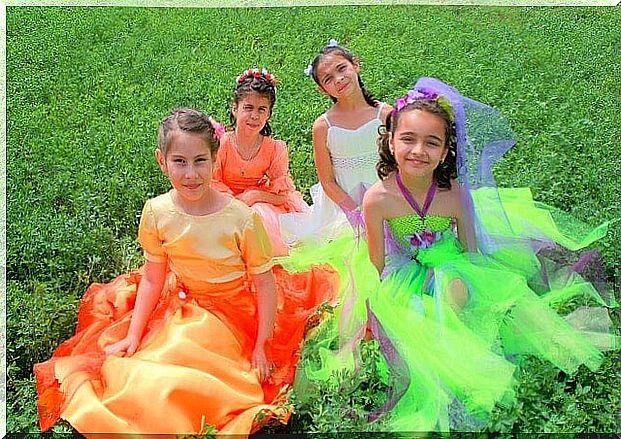
In that report, they ask the specialists if you should let your daughter play princesses: The answer is yes. For the psychologist Mireia Trias Folch, the game helps to mature. “When a girl plays princesses, she invents a kind of story, talks about herself, her wishes and fears, organizing them into a story, giving meaning to her existence.”
For antopologist Apen Ruiz, restricting gambling seems counterproductive. ” Some studies show that if mothers are against girls’ desire to be princesses, they can interpret this rejection as’ my mother does not want it to be a girl ‘, because for them being a girl is associated with the role of princess.”
The anthropologist adds that other studies detect that girls reinvent roles by playing princesses, consuming the product but not passively. Marta Selva Masoliver, former president of the ‘Institut Català de la Dona, also believes that “the invasive capacity of princesses must be stopped, but not in a coercive way.”

What is the danger of the invasion of the princesses
The main problem, points out the article in La Vanguardia, is that the consumer society has embraced the princesses with enthusiasm, transforming them into an immense product that can materialize both in dolls and in toothbrushes, glasses, sheets, sunglasses and underwear.
Professor Marta Selva Masoliver, asserts that princesses have been a recurring theme in recent years in the concern of mothers and fathers. “I think it is because it is one of the first manifestations in which the autonomy of girls is made explicit in the face of the wishes of their parents,” he argues.
He also adds that the amount of inputs that girls receive through the media are also key without forgetting the influence “of psychological, maturation and social environment aspects, which facilitate the adherence of large groups of girls to the proposed models. ”.
There have always been detractors of the princess model. These criticize, above all, their role, rather passive because in general they have to be rescued by man, and the importance of their always graceful physical appearance, of course, with which they do not transmit very edifying messages.
“Perhaps that of the princesses is the first salvo girls receive in what is going to be a lifelong struggle over their image,” writes Peggy Orenstein, author of the book Cinderella ate my daughter , who has become an expert in child princessization .
Without demonizing the princesses
In the same La Vanguardia article, the anthropologist Apen Ruiz explains that princesses could be considered “the most powerful and enduring romantic myth that has ever existed.”
The princesses: beautiful and innocent maidens whose stories generations and generations of little girls have heard, fascinated by their misfortunes of all kinds but who, as the anthropologist describes, “have in common being rescued and saved by a wonderful prince for whom they leave behind. his life to live happily ever after by his side ”.
“Yes, princesses are very, very old but, at the same time, very current,” says Mireia Trias Folch, “and in many cultures, the stories they star in refer us to the rite of passage of the girl from pubescent to woman.” For this psychologist, stories of this type have also served to convey what she calls optimistic fantasies.
“The psychological mechanisms that they set in motion are those of identification. The child identifies with one of the characters, suffers all kinds of tribulations with the hero or the princess and, finally, triumphs with them. These processes represent a hope of solution for the thousands of wishes and daily concerns of children who, often, do not even know what to call them or where they come from ”.
In Trias’s opinion, these stories are a good resource. “The problem is that the myth today has become a product: I think its original and positive meaning has been distorted, changing it for a goal in the service of other interests.”
“Today the culture industry does not provide girls with freedom of choice about their dreams, and the princess culture becomes homogeneous and dominant,” observes Apen Ruiz.
The anthropologist Apen Ruiz believes that girls must be made to understand that a perfect man is not going to solve their lives. “It is important, for example, to show that it is not necessary to put aside a personal professional project to have a family.”
Actual models of princesses, however, do little to support such arguments. The fascination of the adult public and the media with these women is enormous and, as in the stories, the quality that stands out the most is that of beauty. Preparation is secondary. A good bearing is worth more than a college degree; a perfect smile to speak five languages …
However, you must not forget that this powerful model is that of consumer society, but this does not have to be your home, at home you choose the model and believe it, do not let them impose it on you so you come dressed as a princess innocent.




